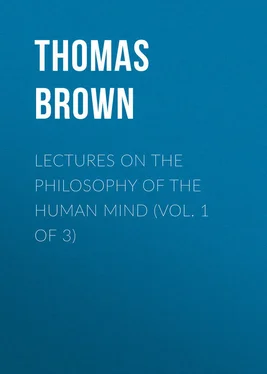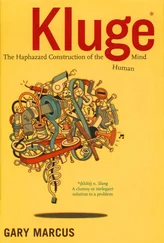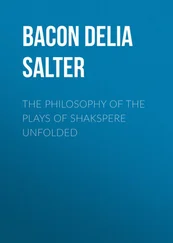Thomas Brown - Lectures on the Philosophy of the Human Mind (Vol. 1 of 3)
Здесь есть возможность читать онлайн «Thomas Brown - Lectures on the Philosophy of the Human Mind (Vol. 1 of 3)» — ознакомительный отрывок электронной книги совершенно бесплатно, а после прочтения отрывка купить полную версию. В некоторых случаях можно слушать аудио, скачать через торрент в формате fb2 и присутствует краткое содержание. Жанр: foreign_antique, foreign_prose, на английском языке. Описание произведения, (предисловие) а так же отзывы посетителей доступны на портале библиотеки ЛибКат.
- Название:Lectures on the Philosophy of the Human Mind (Vol. 1 of 3)
- Автор:
- Жанр:
- Год:неизвестен
- ISBN:нет данных
- Рейтинг книги:5 / 5. Голосов: 1
-
Избранное:Добавить в избранное
- Отзывы:
-
Ваша оценка:
- 100
- 1
- 2
- 3
- 4
- 5
Lectures on the Philosophy of the Human Mind (Vol. 1 of 3): краткое содержание, описание и аннотация
Предлагаем к чтению аннотацию, описание, краткое содержание или предисловие (зависит от того, что написал сам автор книги «Lectures on the Philosophy of the Human Mind (Vol. 1 of 3)»). Если вы не нашли необходимую информацию о книге — напишите в комментариях, мы постараемся отыскать её.
Lectures on the Philosophy of the Human Mind (Vol. 1 of 3) — читать онлайн ознакомительный отрывок
Ниже представлен текст книги, разбитый по страницам. Система сохранения места последней прочитанной страницы, позволяет с удобством читать онлайн бесплатно книгу «Lectures on the Philosophy of the Human Mind (Vol. 1 of 3)», без необходимости каждый раз заново искать на чём Вы остановились. Поставьте закладку, и сможете в любой момент перейти на страницу, на которой закончили чтение.
Интервал:
Закладка:
But beside these general advantages, which the Philosophy of Mind extends to all the inquiries of which human genius is capable, there are some advantages more peculiarly felt in certain departments of science or art. It is not merely with the mind that we operate; the subject of our operations is also often the mind itself . In education, in criticism, in poetry, in eloquence, the mind has to act upon mind, to produce in it either emotions that are temporary , or affections and opinions that are permanent . We have to instruct it, – to convince it, – to persuade it, – to delight it, – to soften it with pity, – to agitate it with terror or indignation; – and all these effects, when other circumstances of genius are the same, we shall surely be able to produce more readily, if we know the natural laws of thought and emotion; the feelings which are followed by other feelings; and the thoughts, which, expanding into other thoughts, almost of themselves produce the very passion, or conviction, which we wish to excite.
“One considerable advantage,” says Mr Hume, “which results from the accurate and abstract philosophy, is its subserviency to the easy and humane; which, without the former, can never attain a sufficient degree of exactness in its sentiments, precepts, or reasonings. All polite letters are nothing but pictures of human life in various attitudes and situations; and inspire us with different sentiments of praise or blame, admiration or ridicule, according to the qualities of the object which they set before us. An artist must be better qualified to succeed in this undertaking; who, besides a delicate taste and quick apprehension, possesses an accurate knowledge of the internal fabric, the operations of the understanding, the workings of the passions, and the various species of sentiment which discriminate vice and virtue. However painful this inward search or inquiry may appear, it becomes, in some measure, requisite to those who would describe with success the obvious and outward appearances of life and manners. The anatomist presents to the eye the most hideous and disagreeable objects; but his science is highly useful to the painter in delineating even a Venus or an Helen. While the latter employs all the richest colours of his art, and gives his figures the most graceful and engaging airs, he must still carry his attention to the inward structure of the human body, the position of the muscles, the fabric of the bones, and the use and figure of every part or organ. Accuracy is, in every case, advantageous to beauty, and just reasoning to delicacy of sentiment; – in vain would we exalt the one by depreciating the other.” 11 11 Inquiry concerning the Human Understanding, sec. I.
There is a most striking passage to the same purport, in that beautiful dialogue on ancient oratory, which has been ascribed, without any very satisfactory evidence, to various authors, particularly to Quinctilian, the younger Pliny, and Tacitus, and which is not unworthy of the most eminent of the names to which it has been ascribed. After dwelling on the universal science and erudition of the great master of Roman eloquence, the chief speaker in the dialogue proceeds to show the peculiar advantage which oratory must derive from moral and intellectual science , to the neglect of which fundamental study, as superseded by the frivolous disputations of the rhetorical schools, he ascribes the decay of eloquence in the age of which he speaks.
“Ita enim est, optimi viri, ita, ex multa eruditione, ex pluribus artibus, et omnium rerum scientia, exundat et exuberat illa admirabilis eloquentia. Neque oratoris vis et facultas, sicut ceterarum rerum, angustis et brevibus terminis eluditur; sed is est orator, qui de omni quæstione pulchre, et ornate, et ad persuadendum apte dicere, pro dignitate rerum ad utilitatem temporum, cum voluptate audientium, possit. Hæc sibi illi veteres persuadebant. Ad hæc efficienda intelligebant opus esse, non ut Rhetorum scholis declamarent, – sed ut his artibus pectus implerent, in quibus de bonis ac malis, de honesto ac turpi, de justo et injusto disputatur; – de quibus copiose, et varie, et ornate, nemo dicere potest, nisi qui cognovit naturam humanam. – Ex his fontibus etiam illa profluunt, ut facilius iram judicis vel instiget, vel leniat, qui scit quid ira, promptius ad miserationem impellat qui scit quid sit misericordia, et quibus animi motibus concitetur. In his artibus exercitationibusque versatus orator, sive apud infestos, sive apud cupidos, sive apud invidentes, sive apud tristes, sive apud timentes dicendum habuerit, tenebit habenas animorum, et prout cujusque natura postulabit, adhibebit manum et temperabit orationem, parato omni instrumento, et ad usum reposito.” 12 12 Tacitus, edit. Lipsii, p. 484, 5.
What is the whole art of criticism, in its most important applications, but the knowledge of the most natural successions of thought and feeling in the mind? We judge of the perspicuity and order of a discourse, by knowing the progress in which the mind, by the developement of truth after truth, may be made at last to see the full meaning of the most complex proposition. We judge of the beauty of impassioned poetry or eloquence, by knowing whether the figures, the images, the very feelings described, be such as, from our observation of the laws that regulate the internal series of changes in the mind, we know to be consistent with that state of emotion, in which a mind must exist that has been placed in the situation supposed. If all other circumstances be equal, he will undoubtedly be the best critic, who knows best the phenomena of human thought and feeling; and, without this knowledge, criticism can be nothing but a measurement of words, or a repetition of the ever repeated and endless common places of rhetoric. The knowledge of nature , – of the necessity of which critics speak so much, and so justly, and which is as essential to the critic himself, as to the writer on whom he sits in judgment, – is only another name for the knowledge of the successive transitions of feeling of the mind, in all the innumerable diversities in which it is capable of being modified, by the variety of circumstances in which it maybe placed. It is for this reason, that, with so great an abundance of the mere art, or rather of the mere technical phrases of criticism, we have so very little of the science of it; because the science of criticism implies an acquaintance with the philosophy of thought and passion, which few can be expected to possess; and though nothing can be easier than to deliver opinions, such as pass current in the drawing-room, and even in the literary circle, which the frivolous may admire as profound, and the ignorant as erudite, and which many voices may be proud to repeat; though even the dull and pedantic are as able as the wise to say, in fluent language, that one passage of a work of genius is beautiful, and another the reverse, – because one of them is in accordance with some technical rules, or because Homer and Milton have passages similar to the one, and not to the other: it is far from being equally easy to show, how the one passage is beautiful, from its truth of character, and the other, though perhaps rich in harmony of rhythm and rhetorical ornament, is yet faulty, by its violation of the more important harmony of thought and emotion, – a harmony which nature observes as faithfully, in the progress of those vehement passions that appear most wild and irregular, as in the calmest successions of feeling of the most tranquil hours. It would indeed, be too much to say, as in the well known couplet of Pope,
“Let such teach others who themselves excel,
And censure freely, who have written well;” 13 13 Essay on Criticism, v. 15, 16.
Интервал:
Закладка:
Похожие книги на «Lectures on the Philosophy of the Human Mind (Vol. 1 of 3)»
Представляем Вашему вниманию похожие книги на «Lectures on the Philosophy of the Human Mind (Vol. 1 of 3)» списком для выбора. Мы отобрали схожую по названию и смыслу литературу в надежде предоставить читателям больше вариантов отыскать новые, интересные, ещё непрочитанные произведения.
Обсуждение, отзывы о книге «Lectures on the Philosophy of the Human Mind (Vol. 1 of 3)» и просто собственные мнения читателей. Оставьте ваши комментарии, напишите, что Вы думаете о произведении, его смысле или главных героях. Укажите что конкретно понравилось, а что нет, и почему Вы так считаете.












![Anne Blunt - A Pilgrimage to Nejd, the Cradle of the Arab Race. Vol. 1 [of 2]](/books/749489/anne-blunt-a-pilgrimage-to-nejd-the-cradle-of-the-thumb.webp)